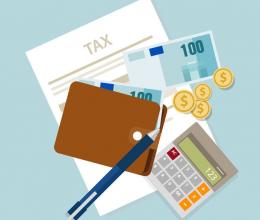When an expat comes to the Netherlands for work, he or she may incur additional costs. These costs are called Extraterritorial costs. An employer may give a knowledge worker a free (untaxed) allowance for the costs this employee incurs. This is called the 30% scheme. We will further explain this arrangement below.
What is the 30% scheme?
The 30% scheme means that the employer can pay out a maximum of 30% of the wages (including reimbursement) to the employees free of tax. By using this scheme, it is not necessary for the employee to prove any expenses. The employee can, in consultation with the employer, submit a request to the tax authorities to claim this 30% scheme.
There are a number of conditions to be able to claim the 30% scheme:
- The employee has an employment in the Netherlands
- The employee has been recruited by the employer from another country or sent to the employer from another country.
- The employee has lived outside the Netherlands for more than 16 months in the 2 years before the first working day in the Netherlands. And that was also at a distance of more than 150 km from the Dutch border.
- The employee has specific expertise that cannot be found, if at all, on the Dutch labour market.
- The employee has a valid permit
The income of the employee concerned must be a gross minimum of € 37,296to be able to claim the 30% scheme. If the income is lower than this gross amount, the employer can choose to reimburse any expenses tax-free, but the 30% scheme is no option.
If the employer pays or provides more than the maximum amount, this multiple amount is regarded as a wage for the payroll taxes.
If the actual reasonably incurred costs are higher than 30/70 of the wage, the employer may also choose to reimburse the actual costs untaxed. Then all untaxed costs must be proven.
What is the advantage for a landlord to rent his home to an expat?
The advantage of renting to an expat who can claim the 30% scheme is that this expat, in almost all cases, has more net income than a Dutch citizen who earns the same gross income. This offers the landlord more security.
An expat comes to the Netherlands with the aim to work and also has agreements with his company. As a result, almost all expats have good financial security.
In addition, most expats remain for a limited period of a few years. As a result, the chance that the landlord will have access to the accommodation itself will be higher within a reasonable period of time.
What are Extraterritorial costs?
The extraterritorial costs are the extra costs made by the expat for moving to another country for his work. Below we have described what falls under these costs. Below is a summary of extraterritorial costs.
- Extra costs for living expenses, because the basic needs in the Netherlands can be higher than in the country of origin.
- costs for an orientation trip to the Netherlands
- costs for arranging papers, permits and official documents such as driving licenses, visas and residence permits.
- there may be double housing costs
- Costs incurred for medical examinations and vaccinations for the stay in the Netherlands.
- the (first) housing costs
- If the employee receives housing, only the (first) housing costs that exceed 18% of the wages from current employment are extraterritorial costs. The rest of the costs are wages. When the employee rents by himself, the employer may also apply the 18% calculation method to provide the additional untaxed pay. In general, the employee cannot be reimbursed for the accommodation costs for furniture or provided by the employer.
- double housing costs can also fall under extraterritorial costs.
- storage costs for the household contents that do not move to the Netherlands.
- travel costs to the country of origin for, for example, family visits or family reunification.
- additional costs for having the income tax return completed if this is more expensive than having the declaration completed by a similar tax advisor in the country where you come from. A maximum of € 1,000 applies.
- course costs to learn the Dutch language for you and for the family members who are staying with you
- extra (non-business) telephone calls for calls with the country you come from
- the costs of applying for an exemption from social security, such as an A1 or E101 certificate
Tax free allowances and benefits
If an employee is entitled to the 30% scheme, he may also receive a few untaxed costs from the employer if the employer chooses so. In addition to the 30% scheme, the following costs can be reimbursed or provided free of tax (specific exemption):
- The removal costs and the costs for temporary storage and the transfer of the household contents
- the costs of an introductory visit by the employee to the company in the Netherlands
- the costs of applying for or converting a work permit
- schooling fees for an international school or for an international department of an ordinary school
- This is referred to as:
- the training at the relevant (department of the) school is based on a foreign system
- the school or department is primarily intended for children of foreign workers
How long can an expat claim this 30% scheme?
The 30% scheme can be claimed for a maximum of 10 years. In 2011, a maximum of 10 years could still be claimed on the 30% scheme. This period was later, with effect from January 1st, 2012, reduced to a maximum of 8 years. Proposals have been made to shorten this period to 5 years.
Source: website Tax and Customs administration of the Netherlands
← Back to archive

